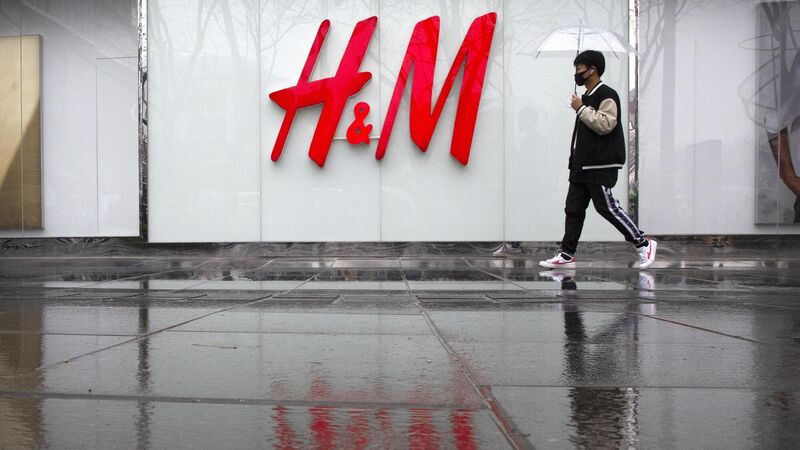H&M should lay low until China anger blows over, says EU business group

Chinese social-media users started a call for a boycott of H&M last week after discovering an undated statement from the company saying it would not use cotton from the far western region of Xinjiang over forced-labour concerns. Picture: AP/Mark Schiefelbein
Chinese anger at H&M and other brands who refuse to use cotton from Xinjiang will pass but businesses will continue to face risks from political issues, the head of the EU Chamber of Commerce in China said.
“You really have to just let it happen, lay low and see when it blows over and then come back again,” Joerg Wuttke said. “Chinese customers love European products and brands, so I guess it will be the same for textiles,” he said.
Chinese social-media users started a call for a boycott of H&M last week after discovering an undated statement from the company saying it would not use cotton from the far western region of Xinjiang over forced-labour concerns.
The retailer was criticised by the Communist Youth League and the People’s Liberation Army, and outlets vanished from Apple Maps and Baidu Maps searches.
Some of H&M’s stores in smaller cities were closed by landlords.
Other Western brands like Nike and Adidas have drawn consumer ire for their pledges not to use Xinjiang cotton. The region supplies about 80% of the material for China.
The US and some other Western nations accuse China of interning up to 1m Muslim Uyghurs in work camps and forcing some 500,000 children into boarding schools.
China denies the allegations, saying it is combating religious extremism and offering jobs and education to improve lives.
Chinese Foreign Ministry spokeswoman Hua Chunying sidestepped a question over whether the government was behind boycotts of H&M and other companies during a regular press briefing in Beijing.
“Some Chinese netizens have expressed their anger over Xinjiang cotton, including on H&M,” she said. “Chinese consumers have the freedom of choice,” the spokeswoman said.
A long list of foreign companies have gotten into trouble in China for offending the ruling Communist Party’s political sensibilities.
State broadcaster China Central Television stopped showing National Basketball Association games for over a year because an executive from one team tweeted support for protesters in Hong Kong.
China hit the EU with retaliatory sanctions over the Xinjiang issue last week. It punished 10 individuals and four entities in the EU, including the Mercator Institute of China Studies, of which Mr Wuttke is a board member.
Mr Wuttke said that while the China market “saved” many companies last year as the Asian nation’s economy rebounded from the coronavirus pandemic, “at the same time there’s this kind of political pressure”.
The backlash could damage Beijing in the long run given “it jeopardises Chinese jobs”, he said. “China definitely doesn’t come out of this looking very pretty,” he said.
•










